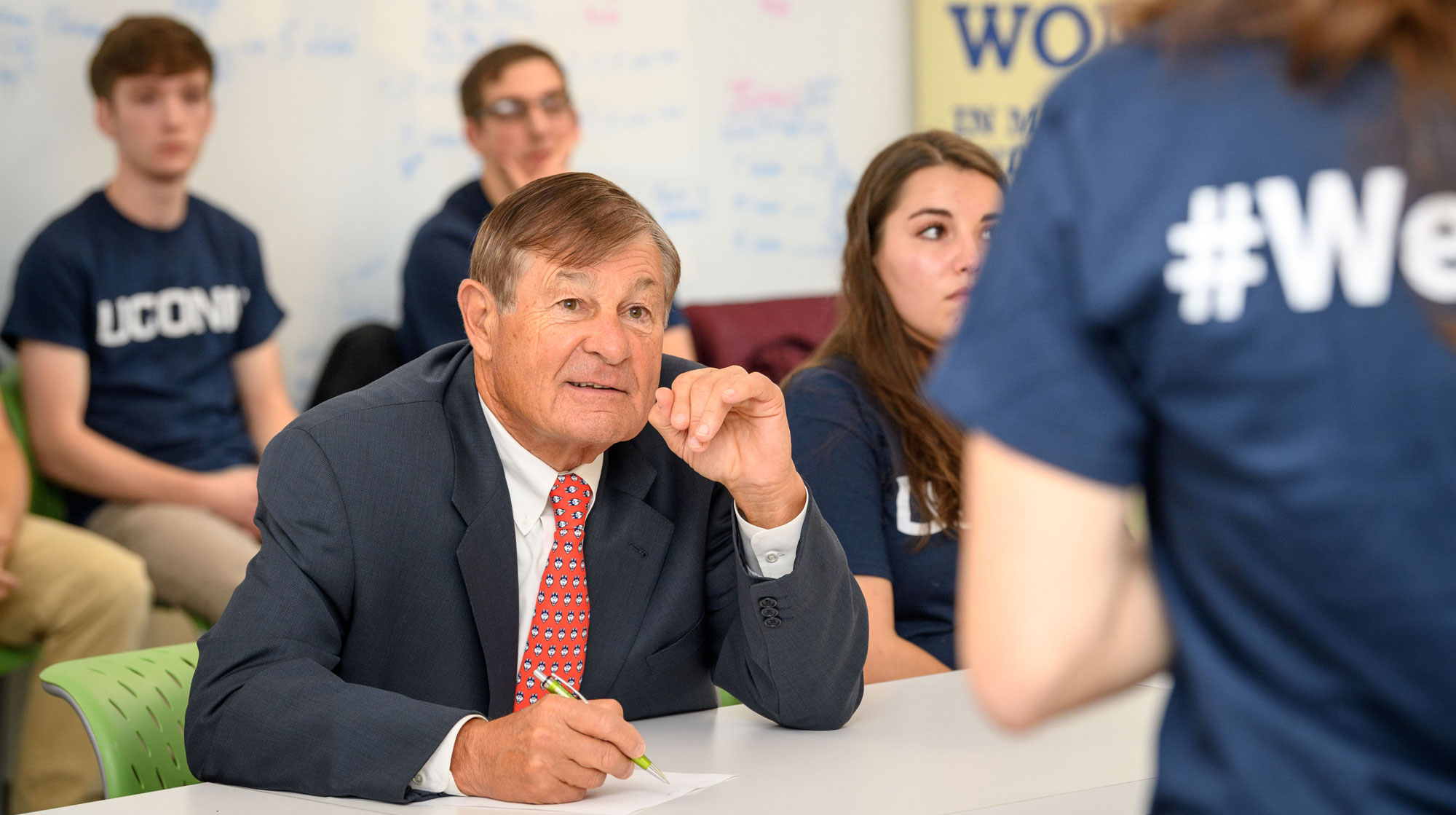Future Entrepreneurs Share Ideas with
Philanthropist Peter J. Werth
The businessman's $22.5M gift to further innovation and entrepreneurship is the second largest in UConn history.

UConn's future entrepreneurs had the opportunity to pitch their businesses to someone who knows what it takes to create a company from scratch: Peter J. Werth, philanthropist and innovator in generic prescription medication.
Werth, CEO, president, and chairman of ChemWerth, Inc., made a historic commitment of $22.5 million to UConn.
"While I didn't attend UConn, I have come to believe in its mission and see the importance of creating opportunities for innovation at our state's flagship university," said Werth. "I'm delighted and honored that I could make this gift in support of young entrepreneurs as they create innovative solutions for today's unique challenges."
Werth met with students in a private setting at NextGen Residence Hall, which now will be known as the Peter J. Werth Residence Tower. Each presentation had a common thread — the UConn Entrepreneurship and Innovation Consortium's members provided the critical funding, mentorship, and guidance to help students enter the business world.
"UConn has played a big part in allowing me to establish myself and establish my business," said Jaclyn Paride '17 (BUS, CLAS), co-founder of Zapployment, a software application that enables employers to fill no-show slots with qualified workers. "I would never see myself where I am right now and working on my own business. I have all these mentors that I've gained."

Thanks to Werth's remarkable generosity, entrepreneurial activities at UConn will now operate as part of the Peter J. Werth Institute for Entrepreneurship and Innovation. Under University leadership, the Institute will continue to bring together student and faculty programs fostering entrepreneurship and innovation that potentially have commercial applications and can be used to create new companies.
This University-wide collaboration is already producing groundbreaking business ideas, including 3-D printing for personalized medicine; a certification program for farms that promotes farmers' health; and a musculoskeletal loading device for sit-to-stand maneuvers for patients suffering from lower limb injuries.
As Werth asked questions and interacted with students, one piece of advice stood out for all of the young CEOs in the room. "Stay focused and execute," Werth said. "The hardest part of business is to stay focused and execute."
"It's invaluable for these students to meet with Peter — someone who's been in their shoes and knows what it takes to be successful," said David Noble, assistant professor in residence at the School of Business. "We're grateful for Peter's tremendous support of entrepreneurial programming here at UConn. We believe we've only scratched the surface of innovation at the University, and his generous commitment will help us go even further."
"Peter's transformative and historic commitment cements his legacy as a most generous friend to UConn," said Josh Newton, president and CEO of UConn Foundation. "As a steadfast UConn supporter for many years, Peter has previously given very generously to our athletic programs. We're grateful that his generosity has expanded to include academics, especially into an area that supports the economy of our state: entrepreneurship and innovation. We hope he will inspire others to follow his lead."
Werth's commitment is the second largest in University history, behind Ray and Carole Neag's $23 million pledge in 1999.
—Tiffany Ventura Thiele

Leave a Reply